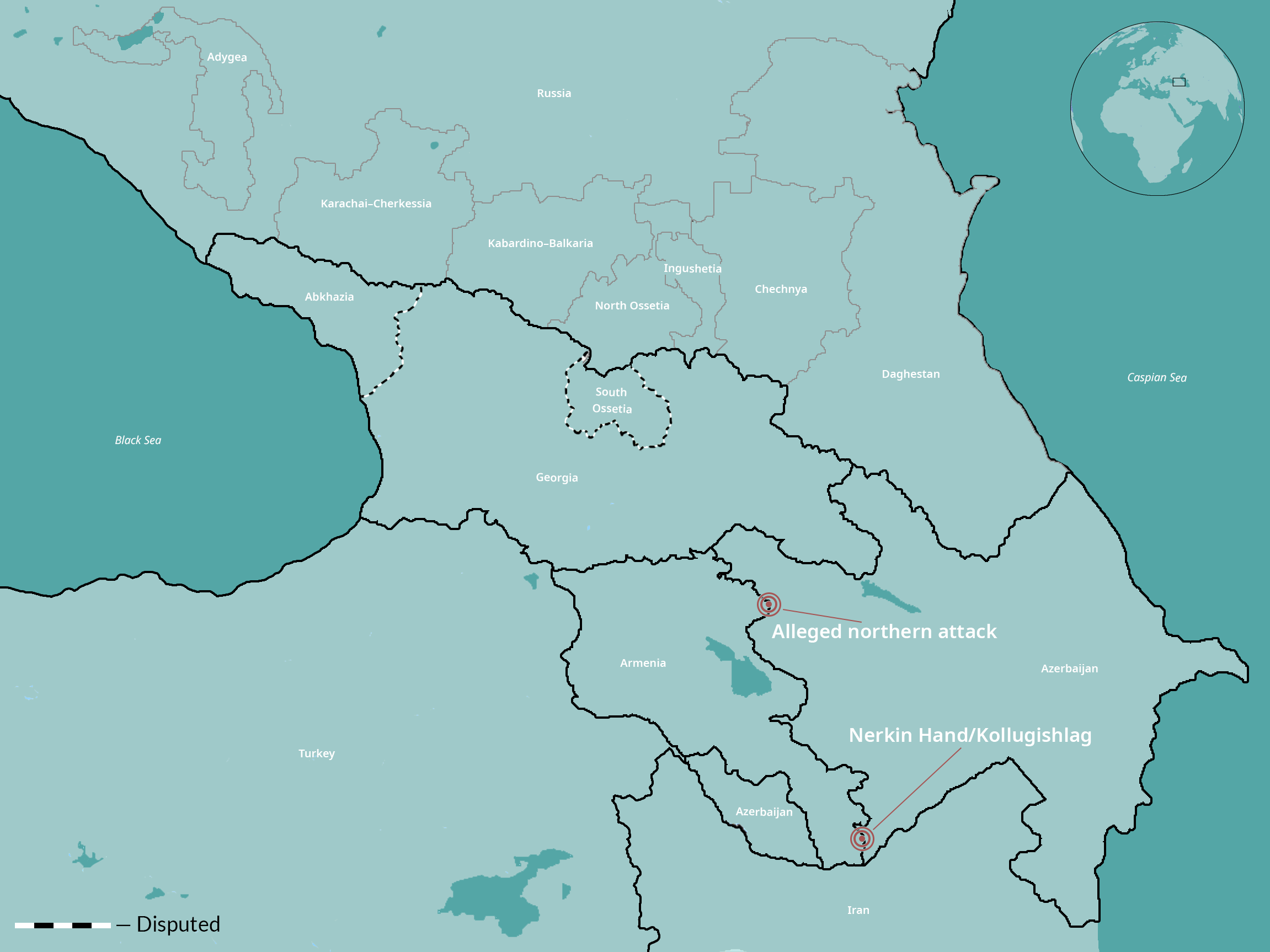Four Armenian soldiers have been killed in an Azerbaijani ‘revenge operation’, after an Azerbaijani soldier was wounded along the border between the two countries.
The incident took place in the south, between the Armenian village of Nerkin Hand and the abandoned Azerbaijani village of Kollugishlag.
On Monday evening, Azerbaijan’s Border Service accused an Armenian sniper of firing at an Azerbaijani position near Kollugishlag, wounding one of their soldiers, releasing footage claiming to show the attack.
Armenia quickly released a statement saying that they were investigating the incident, and noting that their preliminary findings indicated that their soldier had opened fire without justification. ‘If this is confirmed, those responsible for violating the orders will be held accountable’, they said.
During frequent clashes over the past three decades, it has been rarely, if ever, that either side has taken responsibility for an attack on the other.
Despite Armenia’s assurances they were investigating the incident, on Tuesday morning, Azerbaijan announced that they had carried out a ‘revenge operation’ overnight. They said they had ‘completely destroyed’ the Armenian position in question and that ‘there are reports of serious casualties among the personnel of the destroyed combat post.’
On Tuesday, Yerevan condemned the attack and accused Baku of ‘looking for pretexts for escalation’ in spite of having stated that they would investigate the attack that Azerbaijan alleged Armenian soldiers carried out on Monday.
Azerbaijan responded that this accusation was ‘groundless’.
‘Azerbaijan is committed to the peace process and calls on the Armenian side to refrain from military escalations that could jeopardise efforts in this direction’, they said.
On Tuesday, Azerbaijan’s Ministry of Defence also accused Armenia of firing at Azerbaijani positions in the northern Tovuz District on Monday; Armenia denied that any incident in the north had taken place.

Following the clashes that took place on Monday, the Secretary General of the Council of Europe Marija Pejčinović Burić expressed her concern and stressed that ‘dialogue is the only way to sustainable peace’.
On Tuesday, the Russian President’s Press Secretary, Dmitry Peskov, expressed alarm and called on both sides to show restraint ‘in every possible way’.
‘We will watch very carefully and continue our contacts with both sides’, TASS quoted him as saying, adding that such incidents ‘do not contribute’ to advancing the peace process.
Mounting tensions and stalled peace talks
The attack came as Armenia and Azerbaijan push through drawn-out peace talks mired in political and military tension, with both sides mutually accusing each other of hampering the peace process.
Following the violence on the border, Azerbaijan’s Foreign Ministry accused Armenia of ‘undermining the peace process’ in an ‘environment where stability prevailed during the last 4–5 months’.
Despite their claims of ‘stability’, the incident was the latest in several outbreaks of violence on the Armenia–Azerbaijan border in recent months.
[Read more: Armenian soldier reportedly killed on Nakhchivan border]
Monday’s violence occurred hours after Azerbaijan’s Mine Action Agency announced that it had received eight maps containing the location of landmines in Nagorno-Karabakh, but that they were ‘ inaccurate, unreliable, and incomplete’.
Azerbaijan has accused Armenia of submitting inaccurate landmine maps since 2021.
In response, Armenian Foreign Ministry spokesperson Ani Badalyan told RFE/RL that Yerevan’s provision of the maps to Azerbaijan was ‘guided by the desire to settle humanitarian issues, as a means of building trust’.
‘Instead of manipulating the topic, Azerbaijan has the opportunity to reciprocate the approach of the Armenian side in the settlement of humanitarian issues and show a real commitment to building trust’, she said.
In an interview with The Telegraph earlier this week, Armenian Prime Minister Nikol Pashinyan accused Azerbaijan of ‘taking a step back from the reached agreements.’
Baku responded by accusing Yerevan of being insincere with its recognition of its territorial integrity.







